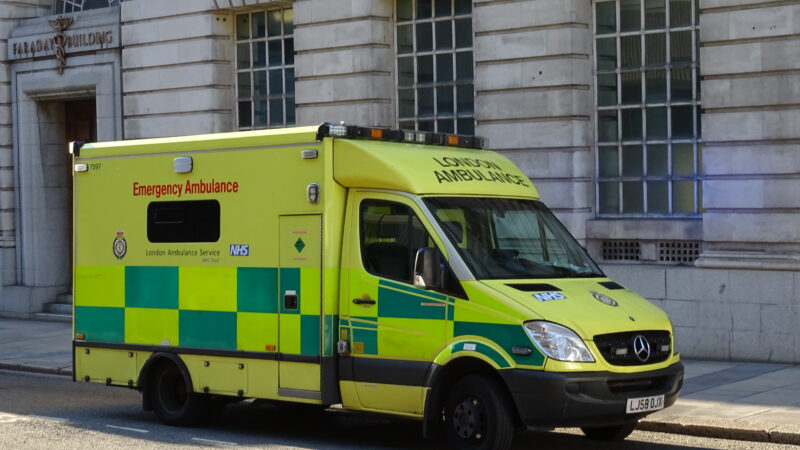
As many as 25,000 ambulance staff are expected to take industrial action today after talks with Steve Barclay failed to reach a resolution. GMB national secretary Rachel Harrison said the negotiations “fell well short of anything substantial that could stop this week’s strikes”, adding: “The public expects the government to treat these talks seriously. It’s time they got on with it.” On the broadcast round this morning, Harrison set out her union’s position clearly. “Our members are not going to back down on this. They have had enough, and the strikes will continue as long as this government allows them to.”
In a statement on industrial action to the Commons on Tuesday, Grant Shapps criticised the ambulance unions, claiming that the strikes would result in “patchy emergency care” for the British public. Responding for Labour, Angela Rayner tore apart the Business Secretary’s argument, telling the story of her constituent Bina, who died waiting for an ambulance. “That was not on a strike day; it was because of the disastrous chaos we have in the system under this Conservative government,” the deputy Labour leader declared.
Shapps used the example of the ambulance strikes to set out the case for the government’s controversial minimum service levels bill. He claimed that a “lack of timely co-operation from the ambulance unions” meant that employers were unable to reach a national agreement on minimum safety levels during previous industrial action in December and that today’s strike did not have minimum safety levels in place. Harrison accused Shapps of telling “mistruths” about the safety measures put in place by ambulance workers during the last strike, stressing that ambulance services had negotiated minimum safety levels.
The government’s account of the previous strikes was fiercely contested by unions at the time. Barclay’s claim that unions had refused to work with the government at a national level on how to cover emergency calls was described as a “complete and utter fabrication” by UNISON general secretary Christina McAnea, who said the Health Secretary knew “full well” unions had been involved in negotiations about contingency plans over the previous couple of weeks. Unite general secretary Sharon Graham argued that Barclay “obviously doesn’t understand how these issues are dealt with in the NHS”, noting that unions had negotiated critical cover, including 999 calls, at a local level “with hosts of NHS trusts”.
The finger-pointing from ministers over the strikes is a blatant attempt to distract from their own failure – not just in negotiations over the dispute, but also in their party’s long-term handling of the NHS. Commenting on the minimum service levels bill this morning, Harrison said: “What I’d like to question as the bill progresses through parliament is what is their definition of minimum safety levels.” Asked what her own definition would be, the union official responded: “It’s certainly not what it is currently. We’ve got 135,000 vacancies across the NHS. We are not able to deliver the standards of care that our members want to be able to deliver because of the staffing criss across the NHS. So I would question, are we operating at safe staffing levels on a day-to-day basis?” Sign up to LabourList’s morning email for everything Labour, every weekday morning.



More from LabourList
Key local council elections to watch for clues on our general election chances
Andy Burnham manifesto: Greater Manchester mayor reveals three key election pledges in bid for third term
‘Labour should grasp the chance to secure EU visa deal for young workers’